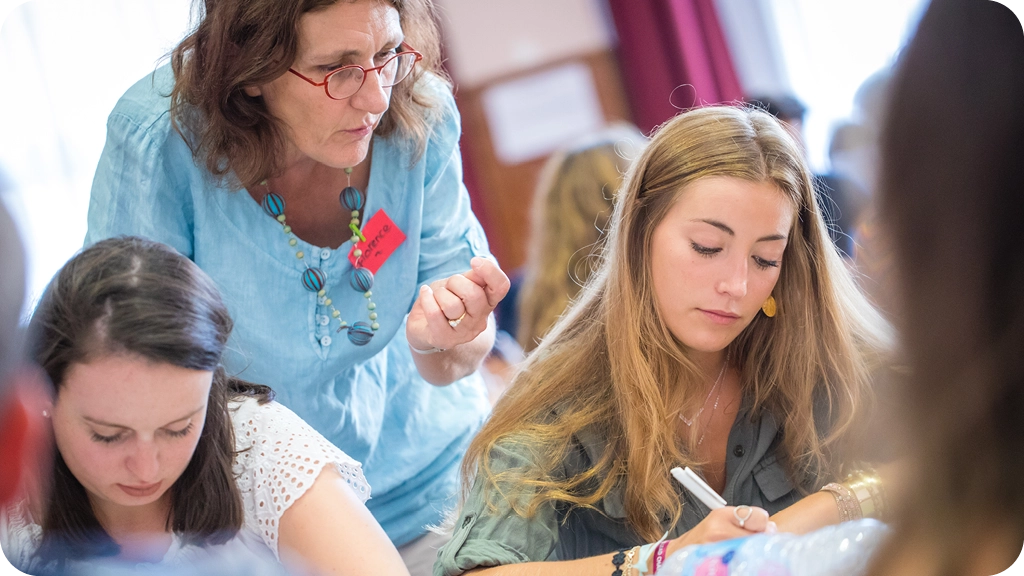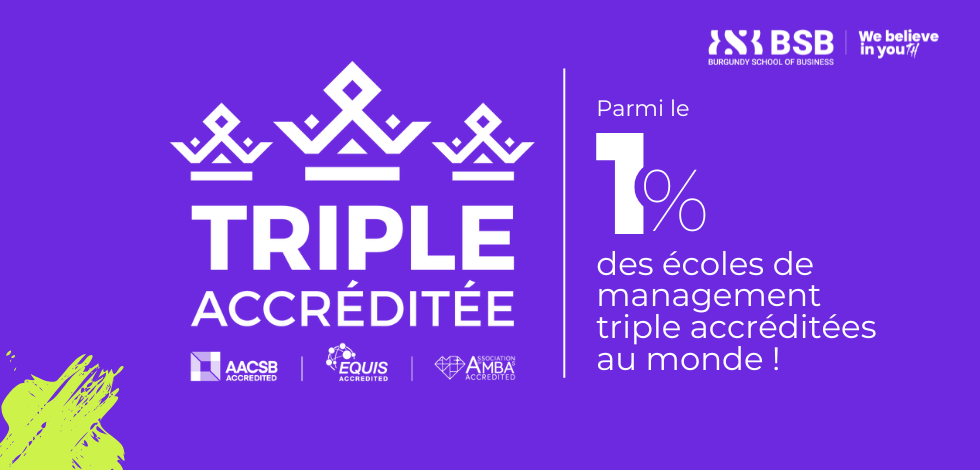Business school motivation letter: the ultimate guide!

Did you know that 77% of recruiters prefer applications accompanied by a cover letter ? One business school cover letter well-written text is essential to stand out from the crowd and convince the admissions committee. It is not just a formal exercise: it must reflect your personality, your motivation and your suitability for the institution in question.
But faced with the rise of artificial intelligence and the numerous models available online, How to write a letter that really looks like you and who does not go unnoticed? What elements do you absolutely need to include in order to maximize your chances of entering the business school of your dreams?
In this guide, we support you Step by step, with concrete advice, a detailed tutorial and a look at the impact of AI in the writing of cover letters.
Research and understand the targeted business school before writing
Analysis of the values and culture of the institution
Each business school has a well-defined identity: a history, strong values, and a specific pedagogy. Showing that you have understood what sets it apart shows that your approach is thoughtful and sincere. A candidate who simply copy-pastes a generic cover letter will miss out on this opportunity.
Take the example of Claire, a student who is passionate about the world of wine. His dream: to work in the management of an international wine estate. When she discovers that a school offers a Wine Business specialization, she knows that she should make it a central part of her letter. Rather than simply mention her interest, she tells how a meeting with a winegrower in Burgundy confirmed her vocation. By making this connection between her experience and the school offer, she transforms her letter into a personal and convincing story.
➡ How do you apply this to your own application? Make the link between your background and the values of the school. Why this school in particular? What does it offer that others don't?
Reference to recent school initiatives and projects
Citing concrete projects from the school shows that you have conducted extensive research and that your motivation is not limited to a simple “I want to join a business school.” A well-reasoned application is always more effective.
For example, if you are applying to BSB, you could mention the Pathfinder program, which offers personalized support to students until their first job. You can explain how such a device is an asset for you, especially if you have a specific professional project but are still looking for the right way to approach it. Or if your project is not yet defined and you want to use Pathfinder as your compass to guide you to the future that is best for you.
Likewise, if you are interested in The international, you can talk about the numerous academic exchanges offered by BSB, and explain how this multicultural dimension corresponds to your career ambition abroad.
➡ Tip: To make this section more fluid, HeyAvoid listing raw facts. Integrate them naturally by explaining how they resonate with your project.
Personalizing the letter: beyond the generalities
Integration of relevant personal stories
Above all, an impacting cover letter is a well-told story.. Recruiters read dozens of letters every day. A standardized letter may go unnoticed.
Let's take Lucas, a high school student who dreams of entrepreneurship. He could just write: “I've always wanted to start my business, that's why I want Entering a business school.” A banal phrase that says nothing about him.
Instead, Lucas decides to tell the story of his first entrepreneurial project : at the age of 16, he launched a small online store for personalized T-shirts. This project, even modest, taught him inventory management, communication on Instagram and the importance of customer relationships. By sharing this experience, he proves that he is not content with wanting to be an entrepreneur: he has already experienced it.
➡ How to do it? Think of a significant experience that has influenced your journey. A trip, a meeting, a project... What matters is not the size of the event, but its impact on your motivation.
Aligning your vision with that of the school
Don't just talk about yourself. A good cover letter shows how the school and your project are a perfect match.
For example, if you are passionate about digital marketing and are applying to BSB, you could mention Marketing specialization and explain how it corresponds exactly to the skills you want to develop. Show that you have identified specific resources that will help you reach your goals.
➡ Tip: Plus your letter shows a strong connection between your project and the school, the more convincing it will be.
Step-by-Step Tutorial: Writing Your Business School Cover Letter
Writing the cover letter takes place in 6 simple steps that we will detail in a few lines:
- Understanding school expectations
- Take care of the hook and the introduction
- Present your academic and professional background
- Explain your motivations and your professional project
- Promote your soft skills and your entrepreneurial spirit
- Take care of the conclusion and invite to an interview
1. Understand school expectations
Even before writing, Do your homework. Follow the advice in the preceding paragraphs.
- Visit the school website,
- look at his specializations,
- its values,
- its recent events.
2. Take care of the hook and the introduction
The first paragraph is decisive. Instead of a boat phrase like “I am writing to you to apply to your school”, start with a powerful anecdote or a strong sentence:
“It all started the day I participated in my first business game in high school. This entrepreneurial challenge made me understand that I wanted to join a business school to go further.”
➡ A good start gets attention and makes you want to read on.
3. Present your academic and professional background
No need to tell everything: select the most relevant experiences related to the program in question.
4. Explain your motivations and your professional project
Why this school specifically? Why this training and not another? A good way to respond is to show how the school fits into your future trajectory.
5. Promote your soft skills and your entrepreneurial spirit
Today, schools are looking for students proactive, creative and able to work in a team. Include concrete examples of your commitment, such as a team project, an associative experience or an internship.
6. Take care of the conclusion and invite to an interview
End on a positive note, by expressing your enthusiasm and your availability to discuss more.

Highlighting transversal skills and soft skills
Business schools aren't just looking for students with brilliant academic results. Soft skills, these human and relational skills, are just as decisive. A good manager is not limited to financial or marketing knowledge; he must also be able to work in a team, solve complex problems, and inspire others.
If you have always been very involved in the community life of your high school. When writing your cover letter, you could simply write that you enjoy teamwork.
Now, imagine for a moment the totally different impact of your letter if you explain that as president of your school's humanitarian club, you coordinated a fundraiser for a local association. You detail the challenges you faced, how you engaged other students, and what lessons you learned from them. Rather than a simple adjective, you illustrate your ability to manage a project and unite a group around a common cause.
➡ Your mission: Don't just say you're “creative,” “rigorous,” or “self-sufficient.” Prove it through a memorable experience.
Soft skills at BSB
If you are applying to BSB, this is the perfect opportunity to highlight your transversal skills in connection with the numerous student projects and Pathfinder support. For example, you can explain how your spirit of initiative will encourage you to invest in a student association, how your communication skills will help you take advantage of the networking events organized by the school, or how your spirit of adaptability prepares you for an international academic experience thanks to BSB's global partnerships.
A cover letter should demonstrate what you can bring to the school as much as the school can offer.
Use of Artificial Intelligence in writing your letter
A few years ago, writing a cover letter was an entirely personal exercise, a profound reflection on one's background and ambitions. Today, artificial intelligence, and in particular GPT chat, changed the situation. Faster, accessible in a few clicks, it can generate a letter in a few seconds. But then, a question arises: Is an AI-generated letter really effective in convincing a business school?
Let's take Julien as an example. In Terminale, he applied to several schools and, like many students in a hurry, he asked ChatGPT to write his letter. In a few seconds, he gets a well-structured, clean, and error-free text. He quickly rereads, changes his first name and sends the application. But a few days later, when comparing with a friend, he realized that their letters were almost identical. Same sentences, same expressions, even your master key. Result? Her letter, although flawless in appearance, reflects neither her personality nor her true commitment.
So how take advantage of AI without losing your uniqueness ?
How do you use ChatGPT to write your cover letter without sacrificing authenticity?
AI is a powerful tool, but It should never replace your personal reflection. Instead of asking for a ready-made letter, use it as helper to structure your ideas, rephrase sentences, or get suggestions.
Think of your letter as a creative project. You are the director and ChatGPT is just a technical assistant. It can help you write, but it's your vision and your personality that need to shine through.
Let's say you're applying to business school for you specialize in financial engineering. You use ChatGPT, but instead of asking for a complete letter, you ask him otherwise:
- “What arguments can I put forward if I have already launched an associative project?”
- “Can you rephrase this sentence to make it more compelling?”
- “How do you make this introduction more engaging?”
With this approach, you keep total control on the content while benefiting from suggestions from the AI. His text remains unique, personal, and above all authentic.
💡 Tip: To avoid a letter that is too artificial, Take the time to reread it out loud. If you feel like you're reading text that doesn't sound like you, rewrite parts of it by adding your own twists and turns.
Mistakes to avoid with AI
AI can be a great tool, but it can also be a trap if misused. The jury of a business school knows how to recognize a letter that is too generic. A sentence like “From a young age, I have always been passionate about the business world” may seem perfect, but it's trivial and overused.
Here it is three common mistakes to avoid:
1. Copy and paste without personalization
It can be tempting to take the first version generated by ChatGPT and send it as is. Bad idea. A letter should resonate with your background, your experience. Always take the time to integrate Personal anecdotes that make a difference.
2. Use a tone that is too formal or impersonal
AI has a tendency to produce style very smooth, sometimes even cold. A cover letter is not an academic report: it should Make the jury want to know more about you. Add your own expressions, a tone that suits you, and above all, Put energy into your text.
3. Forget to proofread and adapt the text
AI can generate sentences that Sounded good, but lacking in meaning. Let's take a concrete example:
“My goal is to join a business school that will allow me to develop my leadership and strategic management skills in a dynamic and multicultural environment.”
A perfect sentence on paper... but it could be applied to any school. Replace this generality with something concrete :
“Joining BSB is an opportunity for me to develop my leadership skills, in particular thanks to the numerous entrepreneurial and associative projects as well as to the Pathfinder program, which accompanies students until their first job.”
It is accurate, relevant and personalized. Your letter should prove that you chose this school for a well-defined reason.

Professional projection and future contribution
Writing a cover letter is more than just explaining Why do you want to enter a school. It is also showing What you plan to do there and how you see your future.
Let's say you are passionate about communication and the media. When you write your cover letter to join a Business school specializing in media and communication, don't just talk about your interest in the sector. Explain that you want to get involved in student projects, participate in events organized by the school and use your time at the school as a springboard to launch your own student media.
So you show that you will not be a simple student among others, but a real driver within the school.
Close your letter with impact and professionalism
The conclusion is your last chance to leave a lasting impression. Too often, candidates end with a classic, impersonal sentence like “I remain available for an interview and thank you for your attention.”
You can do Much better.
Imagine ending with a sentence that reaffirms your motivation and gives a dynamic opening :
“Joining your school is much more than training: it is an opportunity to evolve in a stimulating environment, to realize my ambitions and to actively contribute to student life. I would be happy to discuss more during an interview in order to demonstrate my commitment to you.”
Tip: A good conclusion Doesn't have to be a simple goodbye, but An opening to the next stage : an interview, an exchange, a discussion.
FAQ — Your questions about the cover letter for a business school
1. What is the ideal length for a cover letter?
Most business schools recommend a concise text of 300 to 400 words, which is the equivalent of one A4 page. The objective is to be both relevant and synthetic in order to hold the jury's attention without weighing it down.
2. How do I structure my cover letter?
A structure in 5 to 6 parts guarantees clarity and logical progression:
- Header (contact details, date, subject)
- Strong hook (anecdote or strong phrase)
- A quick overview of your background
- Motivation and school fit
- Professional projection and future contribution
- Dynamic conclusion inviting interview
3. Do I need to personalize each letter for each school?
Yes! A generic letter damages your credibility. It is imperative that you show that you understand the identity, values, and recent projects of the institution in question. For BSB, explore the Pathfinder™ program and our international partnerships in particular.
4. Can I use artificial intelligence (ChatGPT) to write my letter?
AI is a valuable assistant in structuring ideas or rephrasing sentences, but it can't replace your personal voice. Never copy a version generated as is: incorporate your own stories and make sure the tone is right for you.
5. What are the pitfalls to avoid?
- Copy—paste without adaptation;
- A tone that is too formal or impersonal;
- Vague generalities (e.g. “passionate about the business world”) with no concrete link to school.
Always focus on precision and authenticity.
6. How to take care of the shape and layout?
- Use a regular font (Arial or Times New Roman, size 11—12)
- Breathe your text with short paragraphs
- Check spelling and typography (unbreakable spaces before a colon, right apostrophes, etc.)
- Avoid jargons and use simple, powerful sentences.
7. What specific elements should you mention for BSB?
- Your interest in our triple crown accreditations (AACSB, EQUIS, AMBA)
- The international dimension of our +200 partnerships
- 360° support via Pathfinder™ (unlimited coaching, soft skills workshops)
- A specialization that corresponds to your project (Wine & Spirits, Media & Culture, etc.)





To remember